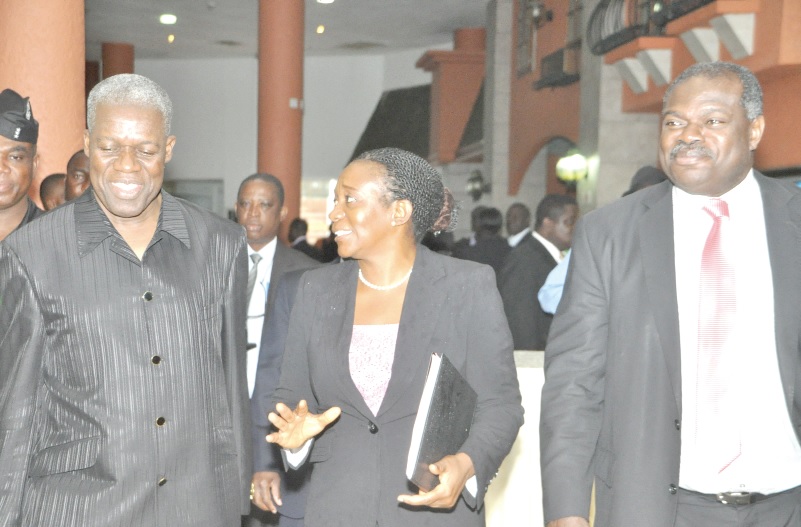Conference of Econometric Society opens in Accra
 The 18th annual conference of the African Econometric Society opened in Accra yesterday, with a call on economic researchers to link research work with everyday economic realities on the African continent.
The 18th annual conference of the African Econometric Society opened in Accra yesterday, with a call on economic researchers to link research work with everyday economic realities on the African continent.
Advertisement
The three-day conference, which is being attended by representatives of member-countries, is on the theme: “The Relevance of Policy Modelling in an Uncertain World with Specific Application to Africa”.
The Vice President, Mr Kwesi Bekoe Amissah-Arthur, who opened the conference, said it was unfortunate that the unpopularity of econometric as a subject had resulted in the lack of proper analysis in the formulation of policies.
He noted that policy was, therefore, unduly based on theory without critical analysis based on economic realities on the ground.
Mr Amissah-Arthur said it was heart-warming, therefore, that topics lined up for discussion during the conference had been based on African economic realities.
He called on policymakers to be well grounded in econometrics to avoid the situation where economic forecasting is not based on empirical data.
In a keynote address read for him, the Governor of the Bank of Ghana, Dr Henry Kofi Wampah, said since its inception in 2002, the inflation targeting (IT) framework had contributed greatly to monetary policy conduct, with positive economic outcomes in the country.
He explained that IT had helped to keep the bank’s focus on price stability and, to a large extent, made the bank to deliver on its price stability mandate, while economic growth rate had accelerated.
Inflation declines
Dr Wampah said over the past decade, Ghana had seen a remarkable decline its inflation rate explaining that from 40.5 per cent (year-on-year) in December, 2000, inflation fell to 12.7 per cent in December, 2007, having touched single digits in April, 2006.
Inflation, according to him, crept to 20.7 per cent in June, 2009, following external shocks, but after adjusting the policy rate along with other measures, inflation fell to 9.5 per cent in July, 2010, and remained in single digits before moving into low double digits in February, 2013.
He said monetary policy decisions had also created the right conditions for economic growth, as evidenced by strong growth records, following the adoption of inflating targeting.
Dr Wampah added that the low inflationary environment together with other prudent and complementary macroeconomic policies stimulated high growth rates that averaged 7.1 per cent per year between 2002 and 2012, compared with a 4.5 per cent average growth between 1986 and 2001.
The BoG Governor said that achieving the price stability objective had been facilitated by supportive fiscal policy, adding that sustained achievement of price stability would require a contradictory fiscal policy and strengthen co-ordination between fiscal and monetary policies.
Structural reforms
Dr Wampah said the bank had since 2002, implemented a number of structural and regulatory reforms to develop the financial sector.
The money and capital markets, the banking and non-bank financial institution as well as the settlement and payment systems had seen structural reforms, he said.
In addition, the financial sector regulatory framework had been extensively reviewed alongside the enactment of new laws to strengthen the bank’s supervisory powers.
In his remark, the Vice Chancellor of the University of Ghana, Professor Ernest Aryeetey, urged policymakers to use policy to shape the country’s trade and economic development.
He told the delegates that the University of Ghana was in a process of a research-based institution.
Prof Aryeetey said the university would establish centres of excellence in areas such as malaria, climate change adaptation, food production and processing and policy monitoring and evaluation.
By Emmanuel Adu-Gyamerah/Ghana




